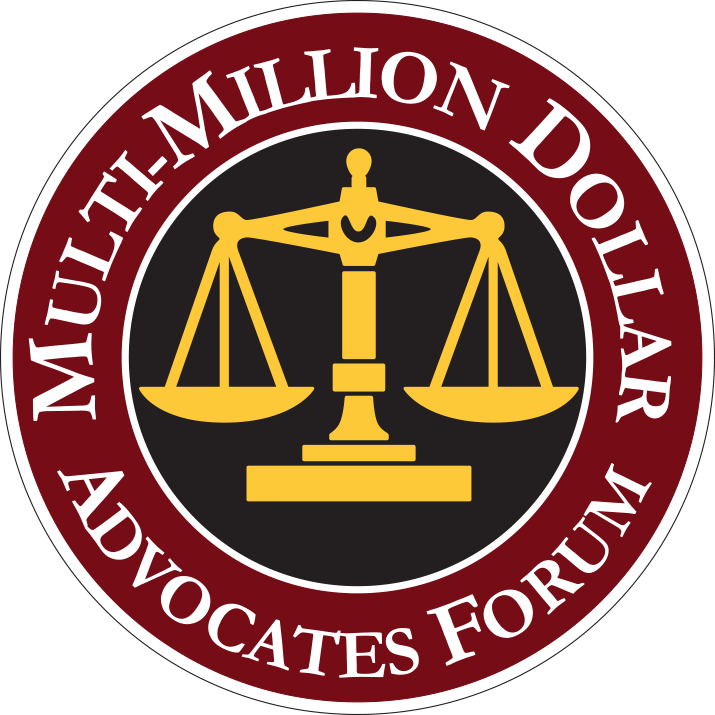What if I get injured while shopping at a store?
These days, much of our shopping is moving online. However, many people still do their business in-person at brick-and-mortar stores. Unfortunately, thousands of people are injured each year while shopping at retail stores. Customers are often hurt in injuries such as slip and falls, head and body injuries from falling objects or retail displays, and parking lot injuries.
Overcrowding injuries become especially common during the holiday season, as people flock to stores to take advantage of Black Friday sales or other discounted deals. Between 2006 and 2018, 44 Black Friday incidents in the United States left 11 dead, and 109 injured, including a man whose hip was shattered when he was shoved into a shelf of discounted merchandise. The effects of the Black Friday craze first became apparent in 2008, when a person was trampled to death at a New York Wal-Mart store, when over 2,000 shoppers burst through the storefront door in what police officers described as a “shrieking mob.”
Although we can certainly hope these injuries will become less frequent in the future, we must recognize that storefront injuries have the potential to wreak very serious havoc. Fortunately, people who are injured on a business owner’s property because of somebody’s negligence have a legal right to compensation in a premise liability lawsuit. A victim who succeeds in a storefront injury lawsuit can often assert their legal rights to help pay for medical bills, and other expenses resulting from the injury.
What is a Premise Liability Case?
If you’ve ever hosted someone at your home, then you already have a basic understanding of premises liability. Before inviting friends over, we check to make sure our living space is clean and safe for our guests. Of course, we want to make sure our living space is presentable, but more importantly, we want to make sure our guests, or invitees, stay safe and out of harm’s way. This is why we take extra care to make sure the floors are dry and clear of clutter that might cause someone to fall and become injured. In the world of premises liability, we refer to this as our “duty of care” to our invitees. When the tables are turned, and we become invitees in their homes, they will respect this same duty of care.
Let’s change the facts. What if, instead of being invited to dinner at a friend’s house, you’re out buying produce at the local grocery store. Imagine that a wet floor causes you to slip and fall, or a heavy box falls on your head, giving you a concussion. Can the storeowner be held liable? The answer is yes. Just like a social host, the owner of a store owes a duty of care to their customers. And, if somebody is injured because they breached their duty of care, they can be held liable for the consequences.
The same area of the law that requires a social host and a storeowner to adhere to a duty of care is commonly referred to as premises liability. It describes the legal duties owed by a property owner or occupant to a person on their property.
Premises liability claims, like all negligence claims in Virginia, involve four common requirements: (1) Duty, (2) Breach, (3) Damages, and (4) Causation. This means that to be considered negligent, a property owner—or any other negligent person, for that matter—must have had a duty to act in a certain way, and they must have violated that duty by failing to act in the way required. Additionally, damages must have resulted from the breach, and it must be shown that those damages were caused by the violation of that duty. For more information on general negligence cases, please refer to this general negligence article on our firm’s blog.
When it comes to premises liability cases, owners (someone who actually owns a store, for example) and occupiers (someone who rents a storefront) can be held liable for conditions on the premises. The law of premises liability has developed over many years of lawsuits between people injured at stores, and storeowners defending their liability for those actions.
What is the Duty of Care?
In Virginia, premises liability plaintiffs are grouped into three categories. These categories are important, because they govern the level of care a storeowner must provide. These categories are: trespassers, licensees and invitees.
A trespasser—someone who has no right to be on the property in the first place—is owed little to no duty of care.
A licensee is someone who enters the property for his own convenience or benefit, with the knowledge and consent, express or implied, of the owner.
Social guests, hunters, and travelers at railroad crossings are all examples of licensees. The owner only has a duty to warn the licensee of dangerous conditions that the owner knows about or should know about.
Invitees fall into the third category. An invitee is someone to whom the landowner has extended an invitation, and the visitor has entered according to that invitation. In Virginia, a store customer is generally considered an invitee. That’s because the store is open to the public, and there is an implied invitation extended to the customer. When they enter the store to shop for items, they have entered the store pursuant to that invitation.
This is important, because invitees are owed the highest duty of care. Storeowners are required to use ordinary care to maintain their premises in a reasonable, safe condition, and to warn the customers of hidden dangers. This explains the reasoning behind wet floor signs over freshly mopped floors—the floor is a hidden danger, and the storeowner is required to warn the customer of that hidden danger. As you can see, this is the highest duty of care owed to any of the three categories.
What goes into a premise liability case?
If you’re reading this article, you may be wondering how to choose the right attorney to represent you in your case. Success in any personal injury case depends not only on knowledge of legal theories, but also on effective application of those legal theories to the facts at hand. Part of that process often involves consulting with highly specialized expert witnesses, who can testify to a jury to explain complex issues, like projected earnings before and after an injury, or the cost of long-term continuing medical care. A skillful and experienced trial attorney can effectively explain these technical concepts to a judge or jury at trial, or to an insurance company or opposing counsel to settle the case out of the courtroom, and bring home a significant award for their client.
For these reasons, it is incredibly important to carefully select an attorney after careful consideration of their knowledge, skills, and proven experience through their track record. Many attorneys can understand the legal theories underlying premises liability cases, but few have a strong track record of wins for their clients. Even fewer attorneys have brought home multi-million-dollar verdicts for their clients.
Powell Law Group has successfully represented hundreds of people injured in negligence cases, including slip and fall cases, traumatic brain injuries, motor vehicle accidents, and other cases. Our firm obtained a $4.5 million verdict for a man who was assaulted in an alleyway as he left a night club. The man was physically attacked by members of a gang that had been ejected from the club. The man was hit on the head three times by a 2×4. By thoroughly researching the past practices of the club and explaining these practices, our firm was able to demonstrate that the club’s negligence caused the injury because the club failed to maintain adequate security in the alleyway.
At Powell Law Group, PC, we provide experienced legal help to people who have been injured in accidents caused by the negligence of a property owner. If you have been injured at a store due to somebody’s negligence, call us today for a free consultation.
E. Wayne Powell is a personal injury attorney who has represented clients in hundreds of negligence cases, returning successful verdicts for clients. In serious injuries, these verdicts and settlements have sometimes resulted in multi-million dollar awards on behalf of his clients. He has helped people who suffered severe injuries in premises liability cases that left them with severe disabilities, and often unable to return to work. He owes much of his success as a Plaintiff’s attorney to his previous defense career as the litigation chair for a large health insurance company in Virginia. Since founding his law firm, he has used his intricate knowledge of the health insurance system to help injured clients in need.





